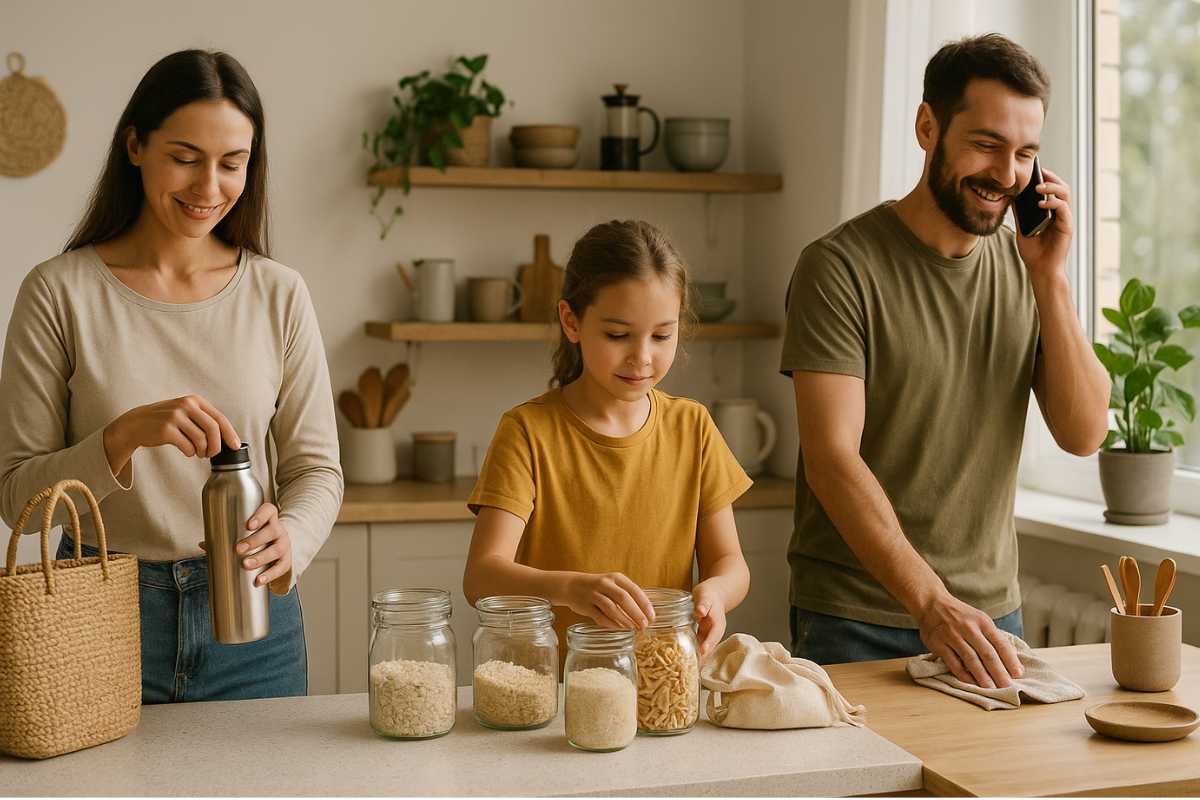Plastic is everywhere—in our kitchens, bathrooms, wardrobes, and even in the air we breathe. While plastic can be convenient, its long-term impact on the environment is devastating. The good news? You don’t need to live zero-waste to make a real difference.
Reducing plastic at home can be simple, affordable, and practical. Here’s how to take meaningful steps without feeling overwhelmed.
Why Reduce Plastic?
Plastic never truly disappears—it breaks down into microplastics that pollute ecosystems, harm animals, and even enter the human body. By reducing your reliance on plastic, you:
- Decrease landfill waste
- Reduce your carbon footprint
- Avoid toxins in food and personal products
- Support sustainable alternatives
- Promote healthier living
Even small reductions multiplied across households create massive impact.
Start With the Big Offenders
Tackle the most commonly used single-use plastics first. These are easy to replace and offer immediate change.
Swap these items:
| Plastic Item | Sustainable Alternative |
|---|---|
| Plastic water bottles | Refillable stainless steel or glass bottles |
| Plastic bags | Cloth or mesh shopping bags |
| Food wrap | Beeswax wraps or silicone lids |
| Takeout containers | Bring your own reusable container |
| Straws and cutlery | Bamboo or metal versions |
Make these your go-to habits and you’ll already see a major drop in plastic waste.
Make Your Kitchen More Plastic-Free
The kitchen is ground zero for plastic waste. From packaging to storage, opportunities for change are everywhere.
Easy adjustments:
- Buy grains, beans, and pasta in bulk
- Choose glass jars and containers over Tupperware
- Store leftovers in metal or silicone containers
- Use wooden or stainless utensils
- Compost food scraps instead of using plastic trash bags
Aim for one change per week—small shifts build real progress.
Choose Personal Care With Care
Your bathroom might be filled with plastic bottles and disposable items. Fortunately, more sustainable options are now available.
Try this:
- Bar soap, shampoo, and conditioner
- Refillable or glass-packaged toothpaste and deodorant
- Bamboo toothbrushes
- Reusable cotton rounds
- Safety razors instead of plastic ones
Not only are these swaps better for the environment, but many last longer and reduce your spending over time.
Shop Smarter, Not Harder
Most supermarket products are packaged in plastic. Look for bulk or minimally packaged items, and get creative with your storage at home.
Tips for low-waste shopping:
- Visit farmers markets or zero-waste stores
- Buy in larger quantities to reduce overall packaging
- Bring your own jars, bags, and containers
- Avoid pre-cut fruits and veggies in plastic trays
- Choose paper, glass, or compostable packaging when possible
Even partial swaps make a difference over time.
Ditch Fast Fashion Plastics
Many synthetic fabrics like polyester, nylon, and acrylic are forms of plastic and shed microfibers with every wash.
Reduce textile plastic by:
- Choosing natural fabrics like cotton, linen, or hemp
- Washing synthetic clothes less often and in cold water
- Using a microfiber-catching laundry bag
- Buying fewer, higher-quality garments
- Shopping second-hand
Sustainable fashion isn’t about trends—it’s about responsibility.
Simplify Cleaning Supplies
Cleaning products are typically sold in plastic bottles—and loaded with harsh chemicals.
Better cleaning habits:
- Make your own cleaner with vinegar, water, and essential oils
- Buy refills instead of new bottles
- Use glass or metal spray bottles
- Switch to compostable sponges or cloths
- Avoid disposable wipes
Homemade solutions are just as effective and reduce both plastic and toxins in your home.
Get the Family Involved
Make plastic reduction a household effort. Kids, roommates, and partners can all play a role.
Ideas to engage others:
- Create a challenge (e.g., “No Plastic Week”)
- Label reusable items clearly
- Celebrate progress with fun, eco-friendly rewards
- Watch sustainability documentaries together
- Involve children in DIYs and shopping decisions
Sustainability is a habit best built together.
Don’t Stress Over Perfection
Some plastics are hard to avoid—medical items, certain packaged goods, and unavoidable circumstances. Focus on what’s within your control and don’t let guilt keep you from starting.
Remember:
- One less bottle is better than none
- Imperfect action still counts
- Progress over perfection
- Reuse the plastic you do have
The goal is reduction, not elimination.
Less Plastic, More Peace
Reducing plastic at home isn’t about doing everything perfectly—it’s about doing what you can, consistently. These shifts bring more intention into your daily life and reduce your impact on the planet.
By simplifying, replacing, and rethinking the way you consume, you help build a future that’s cleaner, safer, and more sustainable—for everyone.
